Renters say fixed-term leases erode stock of affordable apartments amid housing crisis
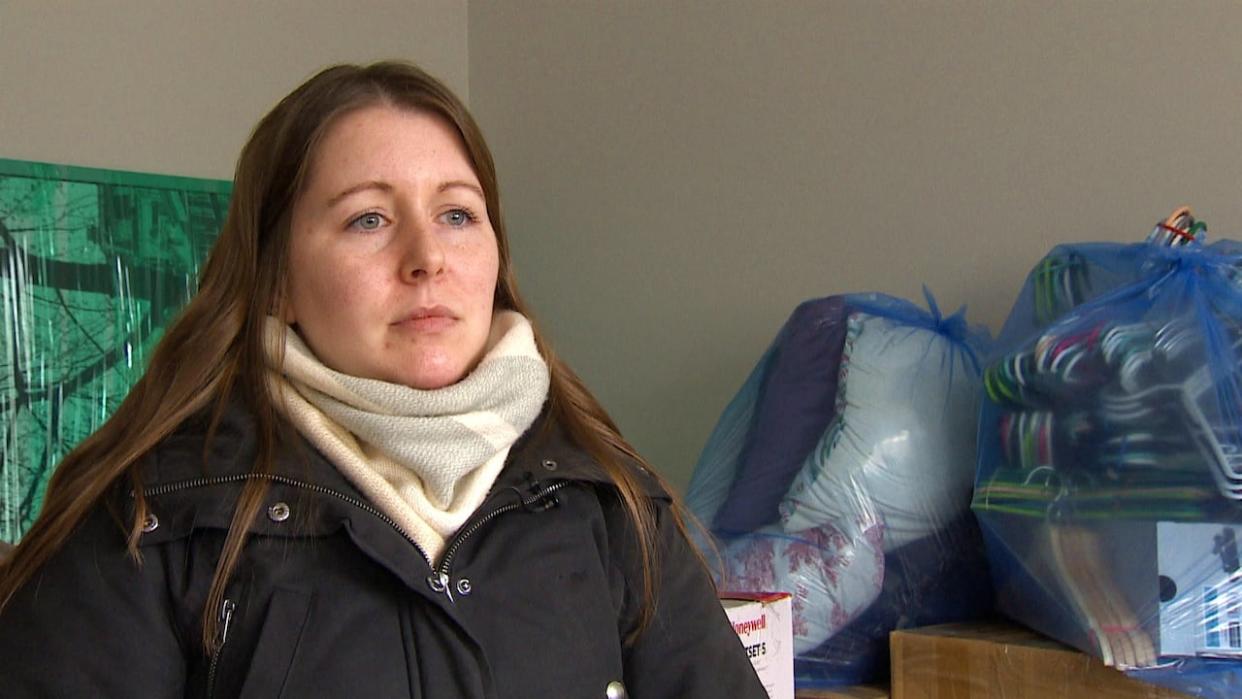
Keely Corrigan happily paid $754 a month for the last five years to rent a modest apartment in Dartmouth's north end, but that's a price range that's rapidly disappearing.
Corrigan was the last tenant to leave the nine-unit building in mid-February after renters were told months earlier that their fixed-term leases would not be renewed by the building's new owners and they would have to find somewhere else to live. Renovations started on the building as Corrigan moved out.
"I was so worried and stressed because we are in a housing crisis," she said in a recent interview. "I don't make tons of money. So I just thought, 'If this happens then I might literally be on the street. I may have nowhere to live.'"
Although the province has a temporary five per cent rent cap for existing tenants, fixed-term leases allow landlords to force tenants out and steeply increase prices for new tenants who aren't covered by the rent cap.
According to Nova Scotia's Residential Tenancies Act, a fixed-term lease is a lease entered into for a fixed period of time, with a set end date. This means it doesn't automatically renew every year and landlords can refuse to renew for an existing tenant.
Corrigan's concerns about prices are supported by statistics. Last year the city's average rent has had its largest jump since this data began being recorded in 1988, and Nova Scotia's rate of rental inflation was the highest in the country this past fall.
"It's a kind of form of gentrification," said Mark Culligan, a community legal worker with Dalhousie Legal Aid in Halifax. "New landlord comes in, buys a building, everyone's on a fixed-term lease and they just don't renew it, do some repairs, rent it out."
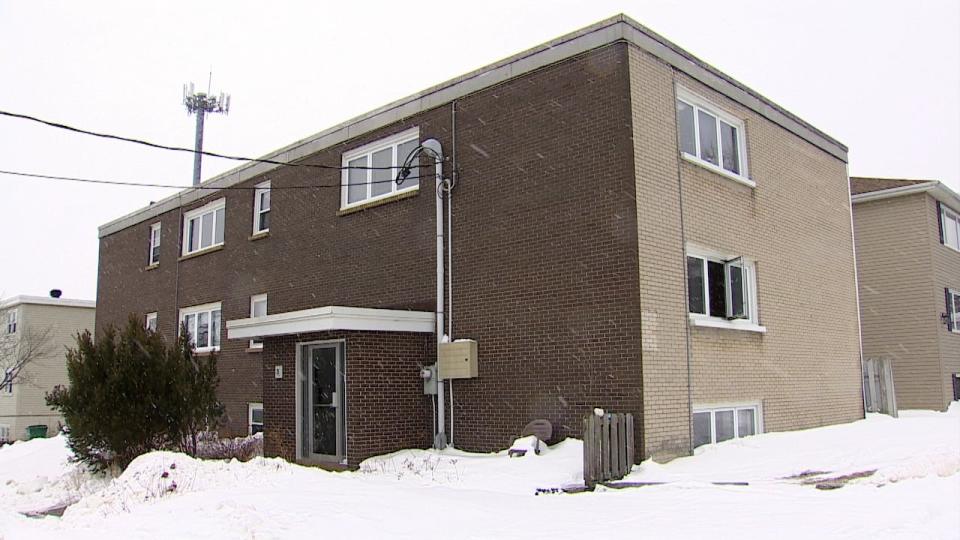
Corrigan said since she was told her fixed-term lease wouldn't be renewed, snow removal and maintenance stopped at the building. (Galen McRae/CBC)
Corrigan's landlords, Mitch, Matt, and Adam Hollohan own seven properties in the Halifax Regional Municipality — at least three of them are larger multi-unit buildings currently under renovations. The brothers did not respond to CBC News's request for comment.
Corrigan said she offered to pay more, but was turned down. Then maintenance and snow removal stopped as the tenants started to move out.
Similar buildings in the neighbourhood have been sold and renovated, she said, with units then renting for $1,500 to $2,000 a month.
"I understand it's a business. I understand they want to make money off of this," she said. "However, at some point, you have to have a heart. People need a place to live, they can't be out on the streets."
She eventually found a new unit for more than double her previous rent. At $1,525 monthly plus utilities, it's a price she knows she can't afford.
Losing thousands of affordable units
Matthew Hayes, a sociology professor at St. Thomas University in Fredericton, N.B., said between the 2016 and the 2021 census, Halifax lost 8,140 housing units priced below $1,000 a month. This is a 25 per cent reduction in the stock.
"If you're looking for a low-income apartment or a low-rent apartment, they're almost impossible to find in Halifax," said Hayes, whose work focuses on gentrification and urban studies. "They're disappearing much faster than they're being replaced."
The federal and provincial governments provide rent supplements and are now funding new affordable units amid a housing shortage. But Hayes said some affordable housing occurs without government action because of factors like the age and condition of the building or its neighbourhood.
"How we're losing this housing is that investors increasingly are seeing those lower-end housing apartment options as an opportunity to increase rents and make money quickly. They're taking advantage of the fact that we don't have adequate rent regulation," he said.
Hayes suggests new regulations are needed to give tenants the right to renew at the end of a fixed-term lease and to tie rent control to the unit not the tenant.
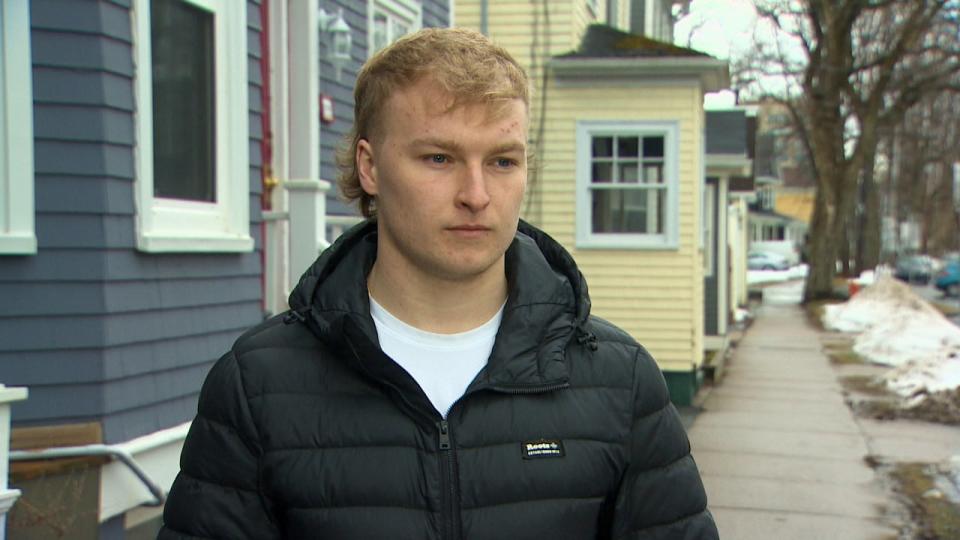
Ben Wilson had been hoping to stay in his rental unit, but couldn't afford the higher price the landlord was offering. (Paul Poirier/CBC)
Tenant Ben Wilson lived in an apartment on Victoria Road in Halifax for three years, receiving new fixed-term leases every year. He and his roommate each paid $765 monthly, an affordable rate for the two full-time students.
In 2023, the landlord, Ash Sabar, began to renovate the building. Wilson said this led to repeated periods of no water, electricity, or septic services, which created "unlivable conditions." But he stayed because the rent was affordable.
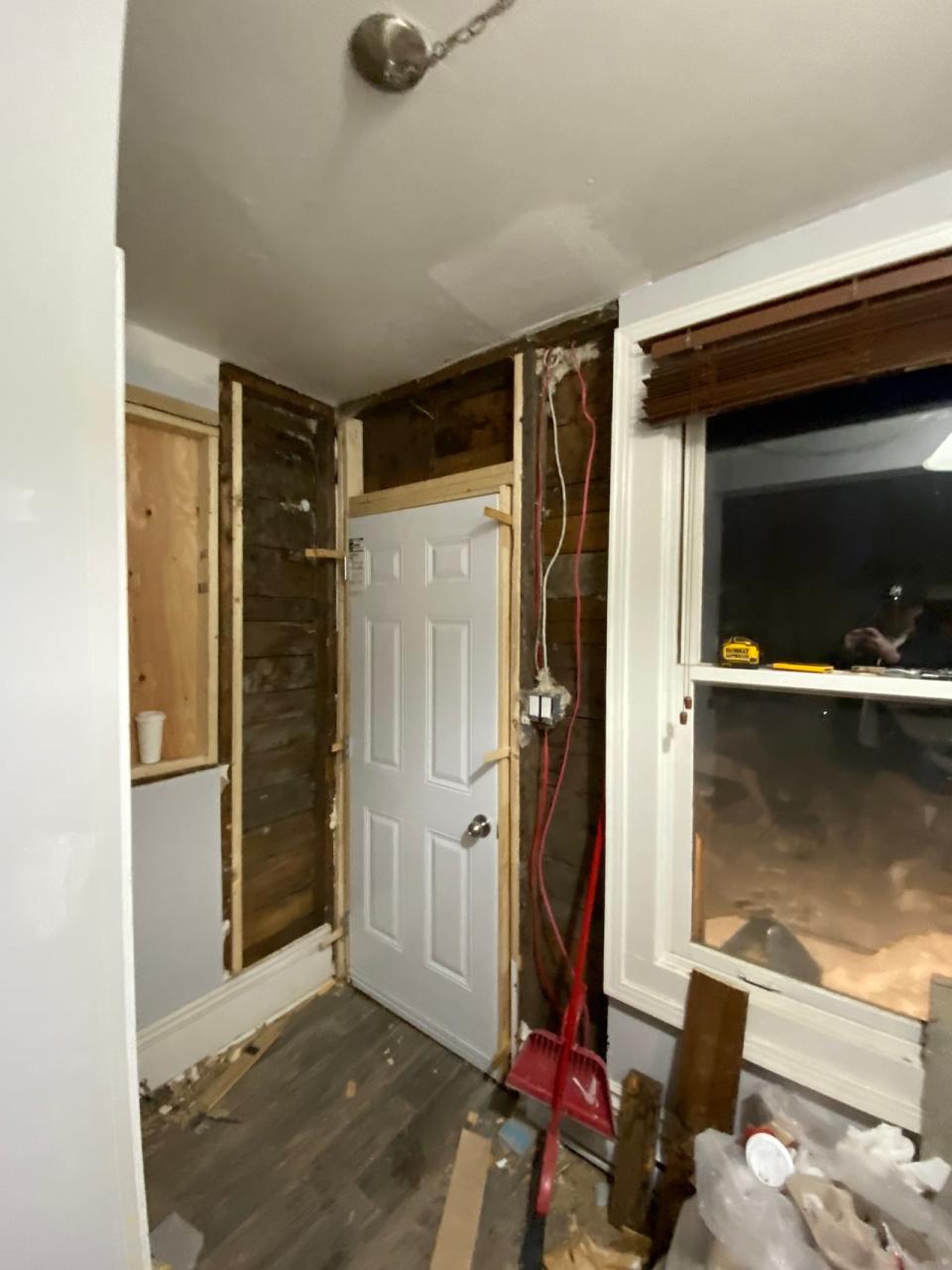
Wilson said the months of renovations caused "unlivable conditions" in the unit. (Submitted by Ben Wilson )
"I felt like I was at the mercy of the housing crisis," Wilson said.
After some back-and-forth, Wilson was offered a new fixed-term lease for $975 per roommate per month. He turned it down because he couldn't afford it, but once he moved, he could only find a new unit at an even higher price.
"I can't afford quality foods anymore," he said. "There have been some days where I've just not been able to make myself a dinner."
Rising costs for landlords
In an email, Sabar said she and her partner own several properties in Halifax, and have made improvements to all of them. She said the Victoria Road building had deficiencies with the foundation, electrical and plumbing that had to be addressed after they purchased it in 2021.
"I would also like to clarify, this is not a lower-rent building; the insurance premium and property taxes reflect that," she wrote.
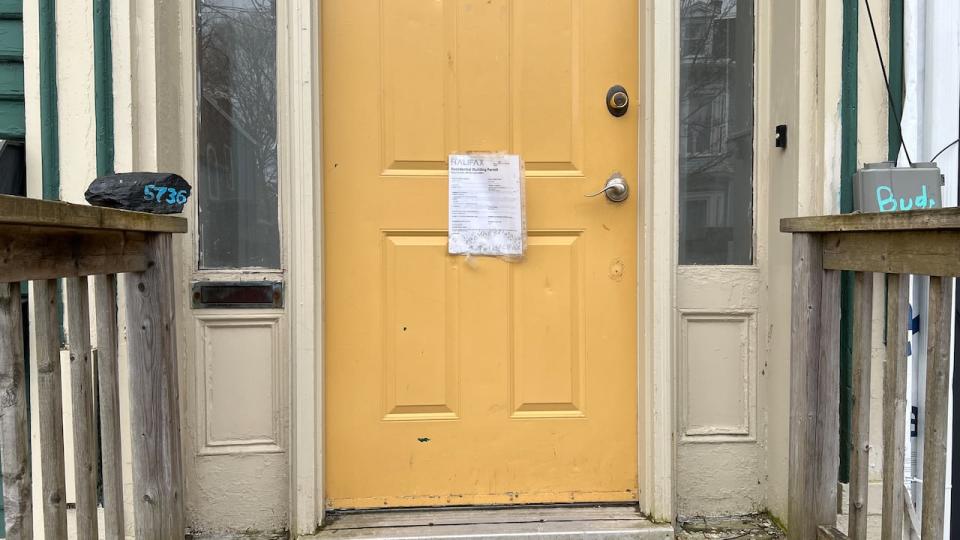
Building owner Ash Sabar said the renovations are required to bring it up to code. (Paul Poirier/CBC)
Sabar said since taking possession of the building, increased costs have outpaced the rent cap.
"Property insurance has increased on average nine per cent per year and the explosion in utility costs over the past years hit landlords as much as anyone else," she said. "The recent tax hikes on fossil fuels were only the latest blow."
Sabar said once the renovations are complete, she intends to keep three existing tenants, and rent the other two units for "fair market rate".
Province says it's balancing rights of tenants, landlords
The province has repeatedly said it is not considering regulating fixed-term leases.
In an email Wednesday, spokesperson Geoff Tobin said the Department of Service Nova Scotia is aware of landlords using fixed-term leases to get around the rent cap.
But Tobin said fixed-term leases also have valid uses, and the province is trying to balance the rights of tenants and landlords.
"We have been working to find ways to address both landlords' rising expenses and tenants' need for rent stability, to reduce the incentive for landlords to use fixed-term leases," Tobin said.
MORE TOP STORIES


